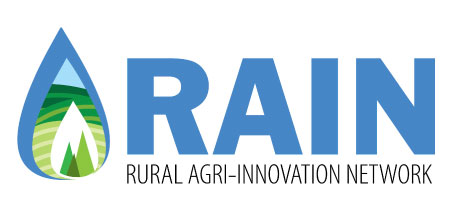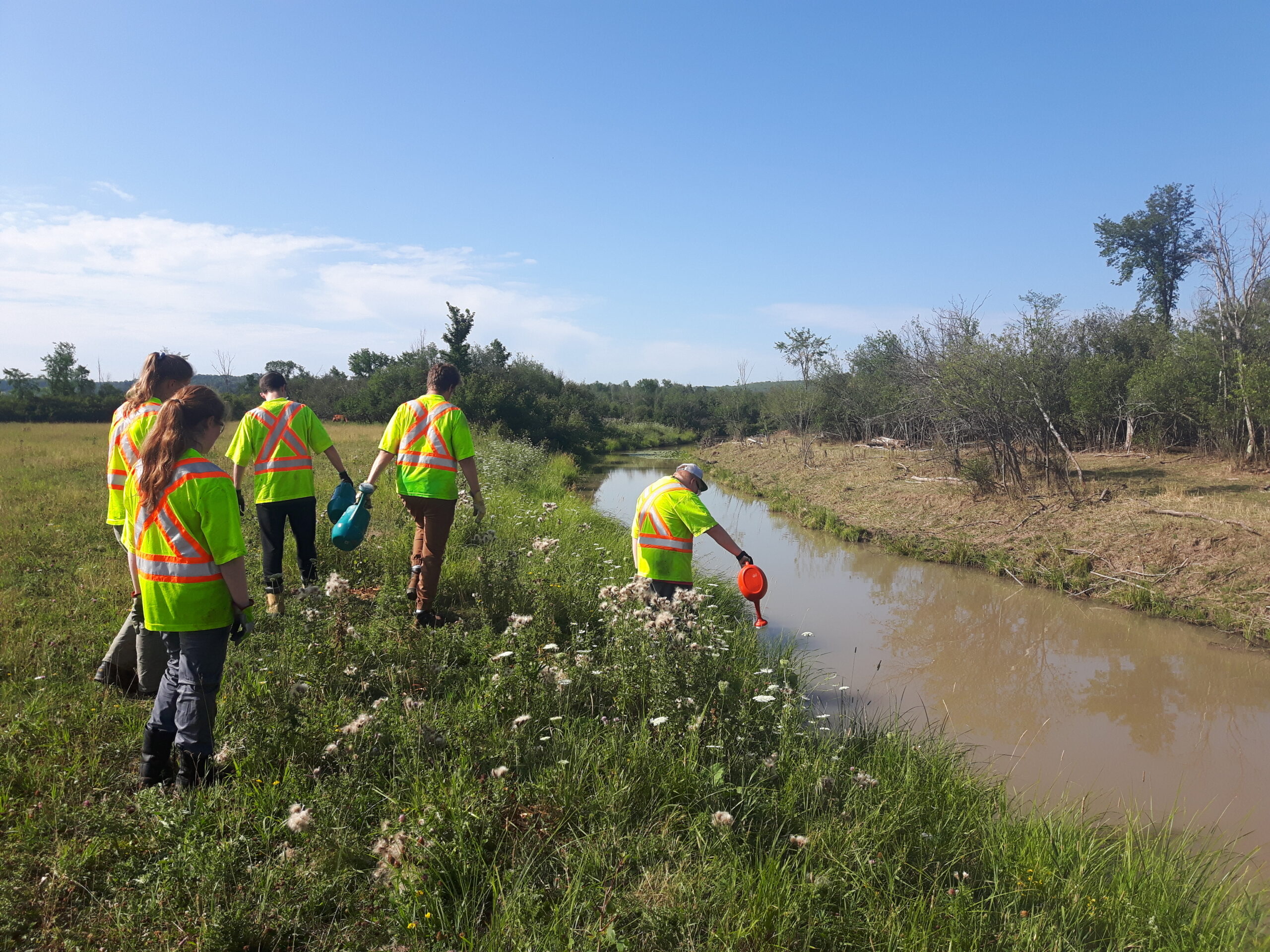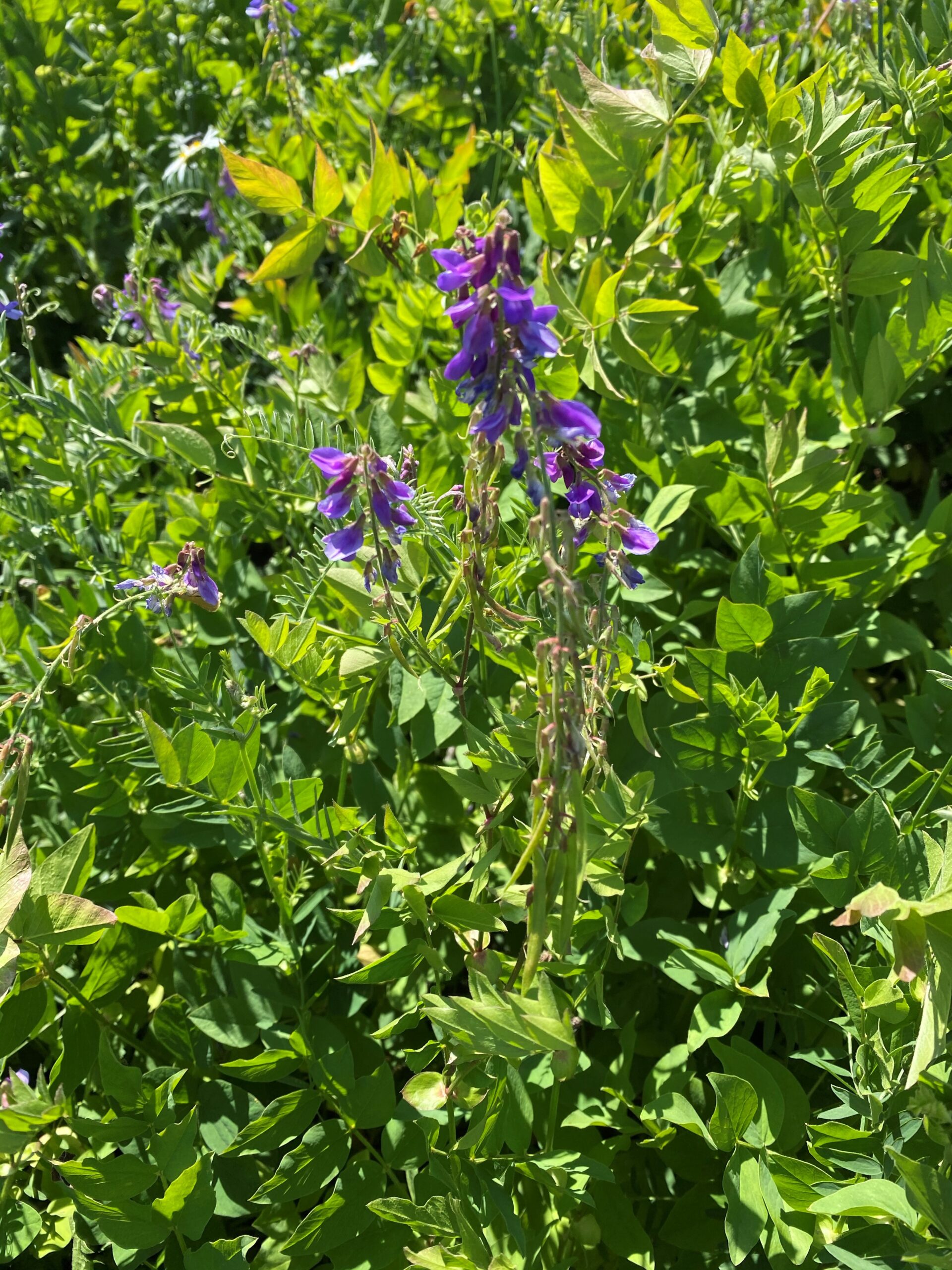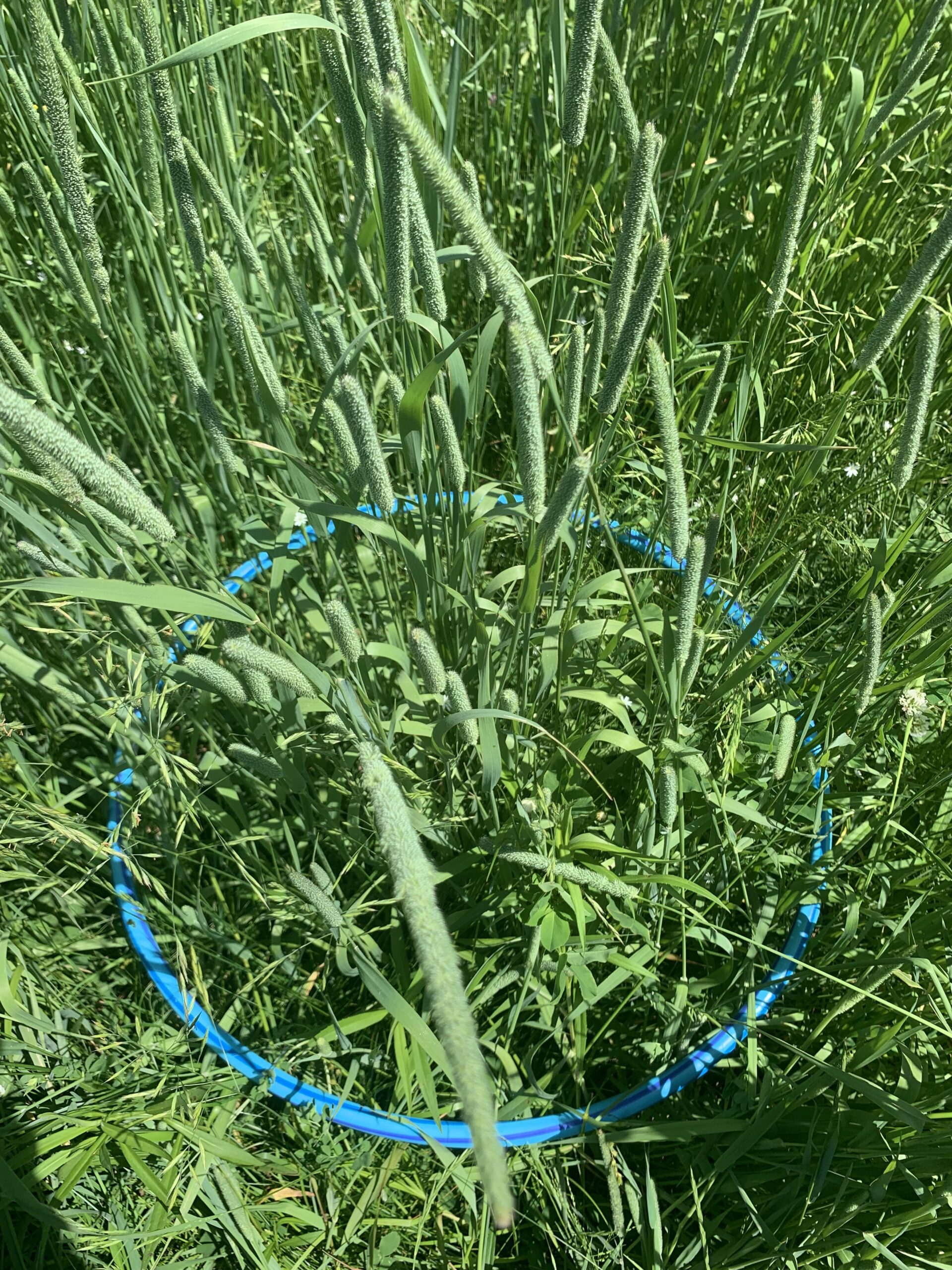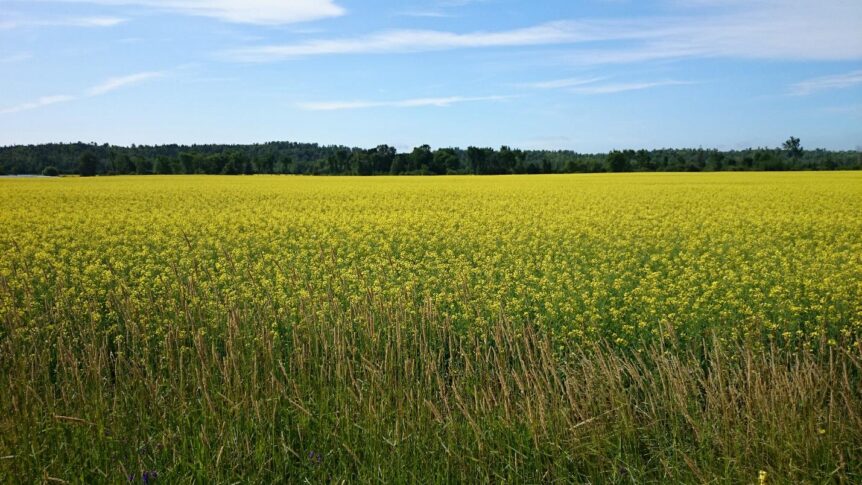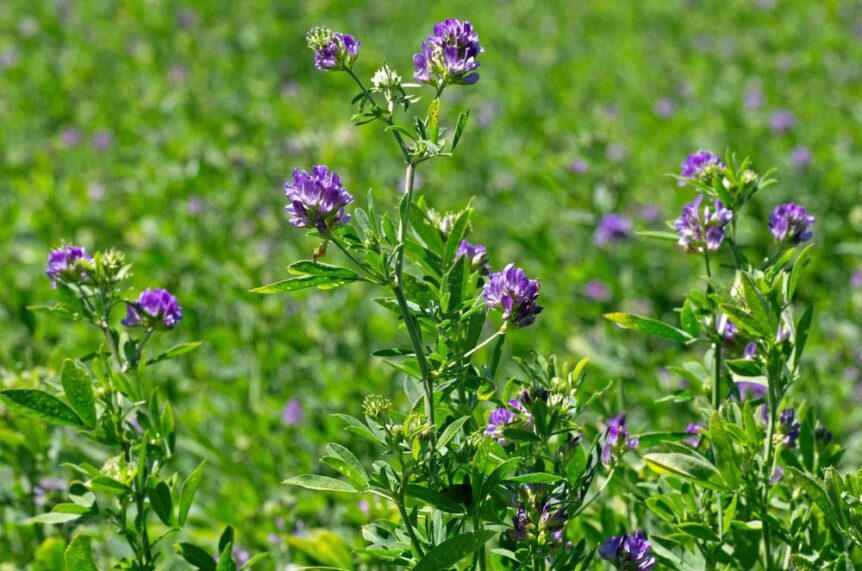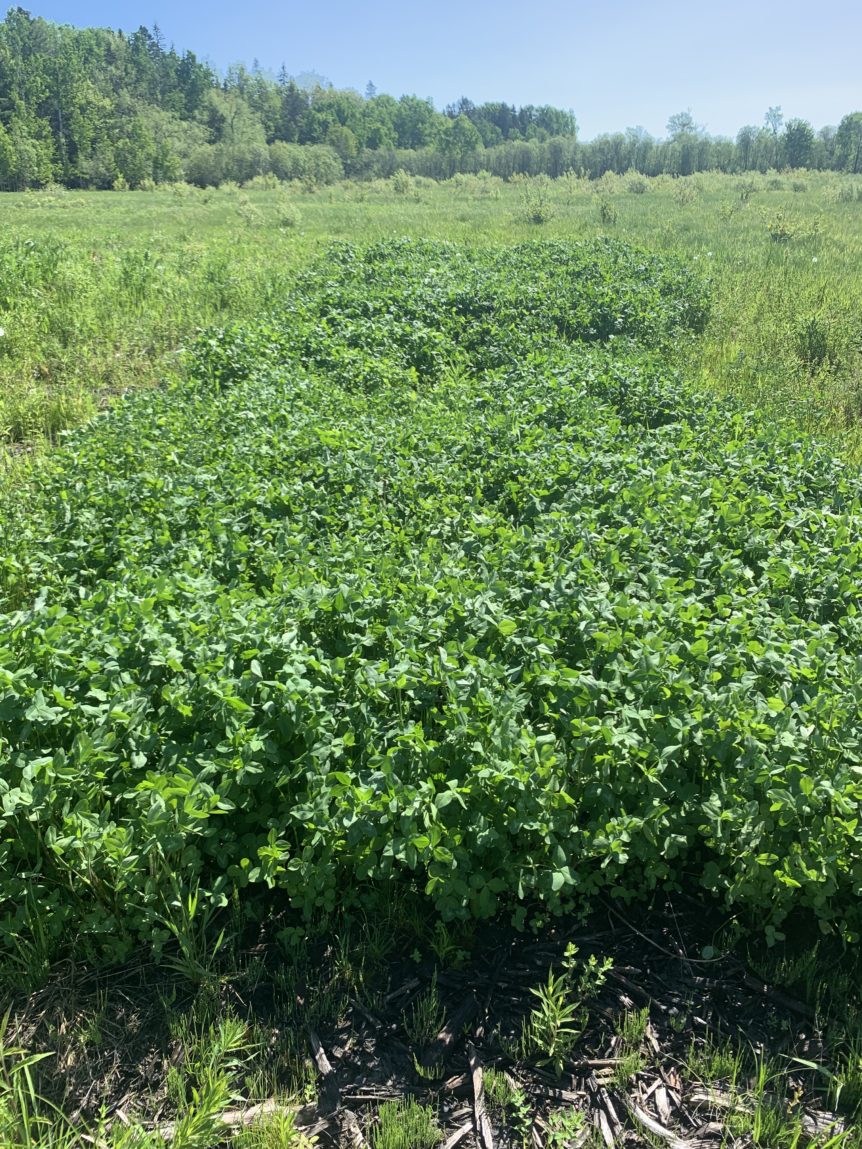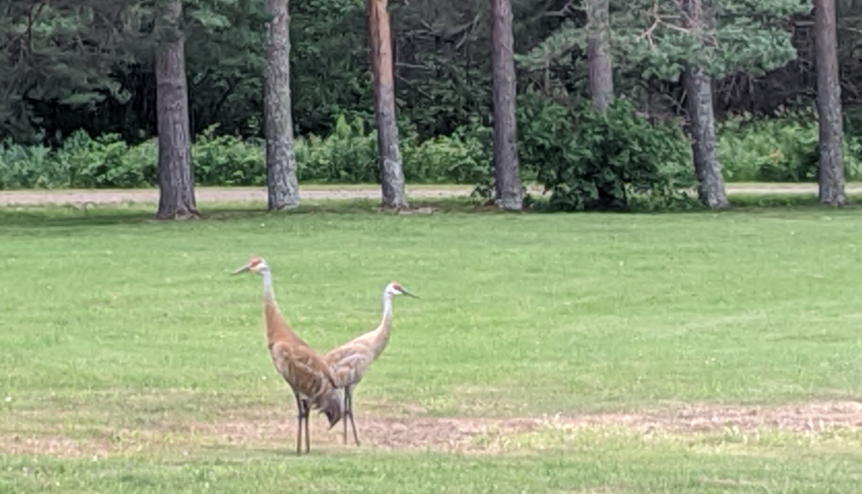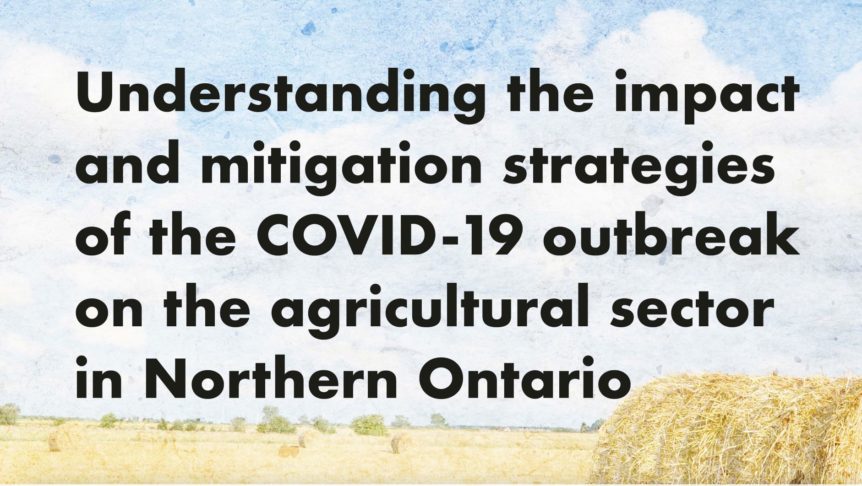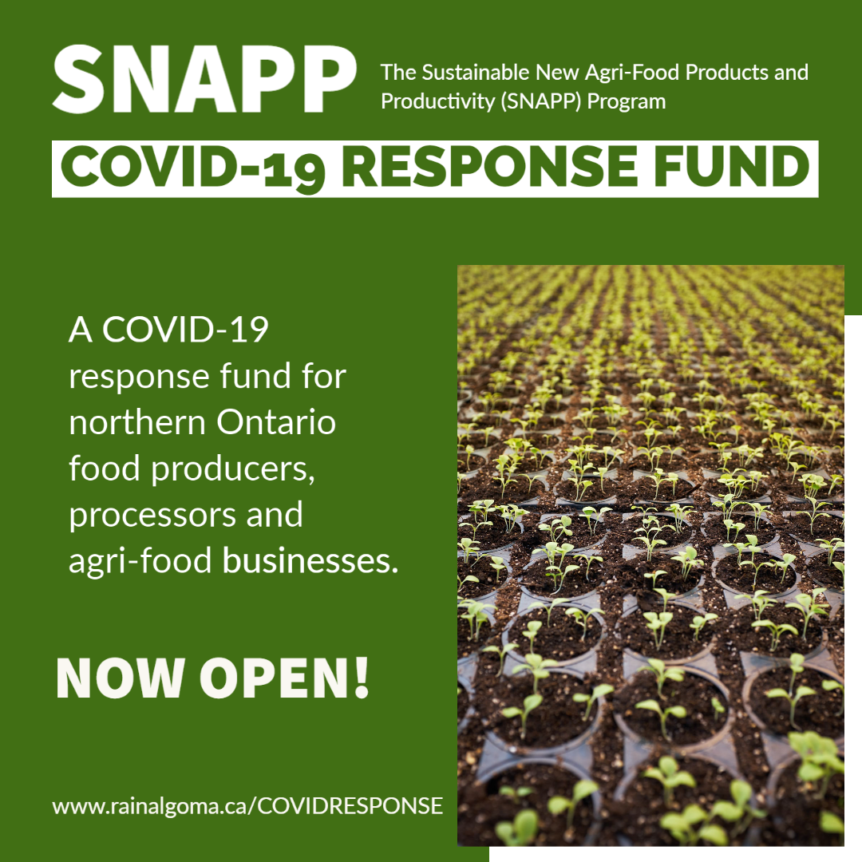A riparian zone is an area next to rivers, streams, lakes, and wetlands. It is usually made up of water plants and saturated soils, along with ecosystems associated with these areas. Riparian zones serve the very important role of preventing soil erosion, which improves water quality, benefits fish health, and maintains a sustainable shoreline. Without an established Riparian zone consisting …
Final Update- Weed control in Galega Part 2
In partnership with LUARS (Lakehead University Agriculture Research Station), RAIN developed a research project in order to find the optimum seeding time of galega in its establishment year, in terms of weed control and yield. Taking place in Algoma and Thunder Bay, the project completed its third year and final year in 2020.Yields were reported in part one of the …
Final Update- Weed control in Galega- Part 1
In partnership with LUARS (Lakehead University Agriculture Research Station), RAIN developed a research project in order to find the optimum seeding time of galega in its establishment year, in terms of weed control and yield. Taking place in Algoma and Thunder Bay, the project completed its third year and final year in 2020. There are two separate areas of galega …
Final Cross-seeding Update
In 2017 a new technique to Northern Ontario was demonstrated called cross-seeding (or cross drilling) in Algoma, Thunder Bay and Emo. Cross-seeding is a technique for establishing a crop where half the seed is planted in a conventional drive pattern using a seed drill. The other half of the seed is drilled at a 45 degree angle to the original …
The Sustainable New Agri-Food Products and Productivity (SNAPP) Program encourages northern Ontario farmers to consider reduced tillage practices.
SNAPP funding assists producers in innovating efficiencies or resources, reducing environmental and ecological impacts while enhancing profitability within their operations. More and more producers in northern Ontario are becoming interested in improving the health of their soil and adopting new ways to increase production. One of the most effective ways to restore and build soil matter is converting from conventional …
Best Management Practices for Alfalfa Production
Alfalfa is one of the most used forage for hay and feed production in Ontario, and best management practices are a very important aspect for producers. This project will be looking at different row spacing for alfalfa and sulphur fertilization. Sulphur has become an increasing area of interest for producers. According to soil tests, most areas in northern Ontario are …
Alternative Legumes- 2020
In spring of 2018, five legumes were planted at the Algoma Community Pasture to show alternative legumes that could potentially be utilized in a Northern Ontario climate. Alfalfa is commonly grown as a forage crop in Ontario, but due to its sensitivity to wet and cold conditions it may not be the most suited to a Northern Ontario climate. By …
Assessment and mitigation of agricultural conflicts involving sandhill cranes.
The Canadian Wildlife Service (part of Environment and Climate Change Canada) and the University of Waterloo will be conducting year 2 of its study on Sandhill Cranes and how their movements relate to agricultural land uses. Information from this study is vital to understanding the nature of conflicts between Sandhill Cranes and agricultural producers and how those conflicts can be …
Help us understand how COVID-19 impacts Northern Ag
Understanding the impact and mitigation strategies of the COVID-19 outbreak on the agricultural sector in Northern Ontario In Northern Ontario, the COVID-19 pandemic has resulted in a disruption of food demand, labour and supply chains. Agri-businesses face numerous pandemic-induced challenges including labour shortages and limited marketplaces. A collaboration of organizations including the Rural Agri-Innovation Network (RAIN), University of Guelph, Northern …
RAIN announces critical COVID-19 Recovery Fund
As COVID-19 continues to impact all sectors of the local and regional economy, a new funding program has been introduced to respond to meet the challenges of expanding the agri-economy in northern Ontario. The Rural Agri-Innovation Network (RAIN), a division of the Sault Ste. Marie Innovation Centre (SSMIC), is pleased to announce the new Sustainable New Agri-Food Products & Productivity (SNAPP) Program COVID-19 Recovery Fund. …
